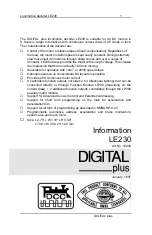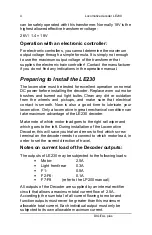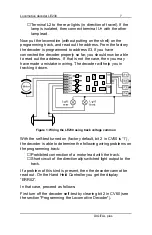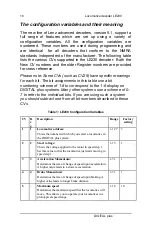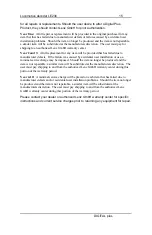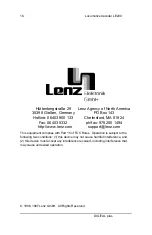
6
Locomotive decoder LE230
DIGITAL plus
limits of the LE230. There must not be any other connections
created to the motor, track, or other terminals on Locomotive
Decoder LE230.
The different installation options
For connecting Locomotive Decoder LE230 there are several
options, all depending on if you intend to connect the functions in
the locomotive (as shown in illustration 1) with their common
lead connected to a rail wiper, or (as in illustration 2) isolated
(isolated from contact with wheel wipers and frame/shell). A
mixture of both connection methods is also possible, for
instance: the light bulbs of the front lighting can be connected to
a wheel wiper, and other functions can be set up to be isolated.
When using LF200, please consult the information included with
it for installation details.
If the light bulbs of the headlights are isolated and connected
according to illustration 2, they will light up a little brighter than
when connected according to illustration 1. In addition, the
directional lights will then also work in conventional DC operation
Which of the methods you use, largely part depends on how the
locomotive is constructed.
Step by step: Installation and Testing
∗
First connect the Locomotive Decoder to the wheel wipers:
∗
Terminal G1 to the right wheel wiper (in direction of travel).
∗
Terminal G2 to the left wheel wiper (in direction of travel).
Then connect the decoder with the motor leads:
∗
Terminal M1 to the motor lead that earlier was connected
to the right wheel wipers.
∗
Terminal M2 to the motor lead that earlier was connected
to the left wheel wipers.
Now you connect the lights:
∗
Terminal L1 to the front lights (in direction of travel). If the
lamp is isolated, then connect terminal U+ with the other
lamp lead.

